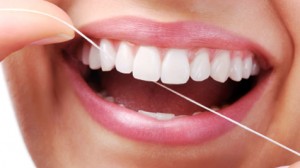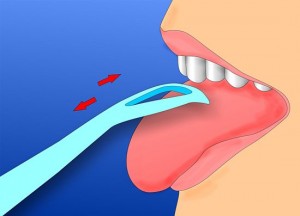Halitosis also known as oral malodor, is the technical term for bad breath. It is an embarrassing subject or topic but more so an embarrassing condition. You wouldn’t know of anyone who is happy knowing they have bad breath. Halitosis or bad breath may be caused by a myriad of reasons. Some are medical in nature and would require seeing or visiting a doctor while other causes are more to do with oral hygiene and habits and the food eaten.
The following should help remedy the problem, if bad breath is caused by poor oral hygiene. If it’s medical, a visit to the doctor is a must.
-
Brushing and Flossing. This is what all dentists say is the first step to having clean teeth. The best defense in preventing halitosis is by brushing at least twice a day and flossing once a day. This practice will help remove the food trapped between the teeth and in the gum line, thus preventing the growth of bacteria inside the mouth.
-
Cleaning Your Tongue. Bacteria located on the top of the tongue closes to the throat protect against bad-smelling breath. The other types of bacteria that develo
 p and grow in the mouth are contributory to bad breath. By cleaning your tongue, you are removing the bacteria and by-products of bacterial digestion which usually accumulate on the rough surface of the tongue. After brushing the teeth, you should also brush the tongue or you can use a tongue cleaner for more effective scrubbing.
p and grow in the mouth are contributory to bad breath. By cleaning your tongue, you are removing the bacteria and by-products of bacterial digestion which usually accumulate on the rough surface of the tongue. After brushing the teeth, you should also brush the tongue or you can use a tongue cleaner for more effective scrubbing. -
Avoid Dry Mouth. Dry mouth can quickly cause bad breath, whether it’s midnight or noon time. A regular production of saliva will help clean your mouth as saliva is naturally antibacterial and it washes away food particles. If you find your mouth dry, stimulate saliva production by having a chewing or mint gum.
-
Know What Food Causes Bad Breath. What you eat can have an effect on how your breath smells. Avoid too much garlic, onion, meat, high-protein and low-carb diets. Meat particles that get stuck between the teeth or collect at the gumline are especially attractive to reproducing bacteria. On the other hand, low-carb diet can trigger ketosis, a metabolic state that causes the body to burn fat instead of sugar. Ketosis is notoriously known for causing bad breath,
-
Mouth Rinse After Eating and Drinking. What you eat and drink can cause bad breath. Acidic beverage including soda pop, alcohol or coffee will release compounds into the bloodstream which will release odors through your breath. Acidic drinks can also cause your mouth to have low pH level, which will allow bacteria to flourish and release sulfur compounds which smell like a rotten egg. By rinsing your mouth with mouthwash or water after meals and drinks can help rebalance your mouth’s pH levels. Rinsing can also remove t
he food particles left in the mouth, preventing accumulation that can attract bacteria to develop.
-
Use Nature’s Cures. Chasing your meal with green tea or sipping tea throughout the day can help combat bad breath. Green tea has anti-bacterial compounds that kill the germs in the mouth.
-
Eat to Smell Sweet. There are foods that smell good and can cause your breath to smell good, too. You should eat fruits high in vitamin C – melons, citrus fruits, berries, etc. Vitamin C is an enemy of bacteria in your mouth. Instead of reproducing, bacteria will die if you are packed with vitamin C.
-
Skip the Cigarettes. Cigarettes release a cocktail of chemicals into the mouth aside from causing a host of medical problems. Smoking can cause plaque buildup, dries out the mouth – both of which are the perfect contributors to having bad breath.
Visit the Dentist. This is necessitated if you still continue to have bad breath despite doing all the countermeasures against bad breath. Your teeth might need professional cleaning. A regular visit to the dentist every 6 months can help prevent buildup of plaque or tartar which can definitely cause bad breath.
To learn more about Dealing with Halitosis please visit our blog articles:
- St. Lawrence Dentistry Looks Forward To St. Patrick’s Day! - March 12, 2025
- Understanding Dental X-Rays and Radiation: What You Should Know - January 13, 2025
- Happy New Year from St. Lawrence Dentistry! - December 30, 2024










